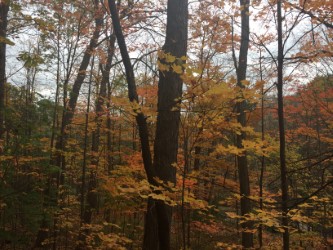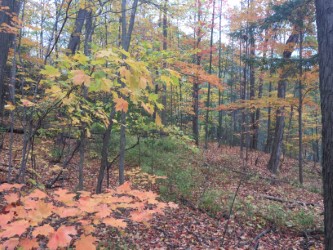Philip and I just returned from a beautiful two week vacation in the south of Spain. We flew into Sevilla, then traveled to Cordoba, Granada, and Valencia, with a brief stop in Ronda - a smaller town with the white houses nestled high in the hills. We had wonderful weather - the first ten days were consistently beautiful - hot and sunny. Blue, blue sky with no clouds in sight. For a while, I wondered if it ever rained thereEurope is filled with beautiful sights, and Spain is no different. I couldn't count the number of ancient churches, mosques, museums and other historical buildings that the tour book suggested were must see stops. Not wanting to miss anything, we would arrive before the site opened and stand patiently in line until it opened so we could buy tickets and tour the site. Then off to the next church or palace, to wait our turn, often for over an hour, in the hot sun. We would dutifully tour the inside and take our photos before trekking onto the next stop.
There were some truly incredible sights -the Mosque/Cathedral in Cordoba was definitely one. We went first thing in the morning as if you arrive early there was no entry fee before 9:30 am. We thought an hour should cover it. Much to our surprise, at 9:30 am the guards very efficiently scooted everyone out the door and we found there was so much to admire we wanted to go back. So we stood in line again, to purchase tickets, this time to enter again after mass.
We were truly in awe in this place. Imagine a room built with over 856 columns of jasper, onyx, marble and granite. These columns are joined with arches that are red and white and instantly recognizable culminating in high arched ceilings. It was originally thought that this was built on the place of a Christian Church and then was shared with the Muslims until 784 when the building was destroyed the the current structure began. The current structure then started as a mosque and in 1236 was converted to a Catholic Cathedral. It was fascinating to see how the Renaissance naive had been built in the centre of the building and interwoven with the moorish architecture.
We spent all morning admiring this structure, and exploring the many capillas around the exterior wall, the ornate doors and results of historical excavations. The level of detail in the workmanship was incredible. Then the next day, we drove to Granada to see the Alhambra, a world UNESCO heritage site and the second most visited tourist spot in Spain. We had heard so much about it it was hard not to have high expectations. By now, we had been touring Spain for 10 days and had seen an incredible number of old and interesting buildings.
After spending all morning at the Alahambra it felt a bit anti-climatic. Yes, it was big, and old and impressive but after seeing so many other interesting and impressive sites, it felt a bit less impressive somehow. We had become accustomed to this grandeur somehow.
It reminded me a bit of life. Each day we experience so many incredible things but often we fail to fully notice and appreciate them. We just go through our day and focus on the next thing on our to do list. We don't stop to notice the lyrical pattern the clouds are making in the sky or the way the soft morning light changes the look of the skyline. We fail to fully marvel at the look of curiosity on the face of the baby in line ahead of you at the coffee shop, the orchid that continues to bloom despite often being forgotten and the infinite shapes and colours of the maple leaves dotting the lawn.
Stop today and notice -just notice what is around you. What are you passing by that you aren't fully appreciating? Research shows that a dose of awe makes us feel less important (in a good way) and makes us more likely to help others. It also seems to have positive health benefits by reducing a biomarker that causes inflammation. If that isn't enough, put your phone down and get out in nature. There is nothing like natural beauty to fill me up and make me appreciate things. There it seems that savouring comes more naturally.
Our brains get used to seeing the same sight every day and eventually it stops really absorbing the familiar. This defence mechanism prevents the brain from overload. If our brains fully absorbed everything all the time, it would be exhausted and we would have difficulty in sorting out what information is important. As a result, it filters out the familiar, and we notice what is different. We can counter this though by being fully present. By paying attention to the details, and by practicing awe and savouring. Enjoy these last days of fall, as winter will soon be upon us. Here is to savouring that hot chocolate by the fire place after a hike in the crisp cool weather.









